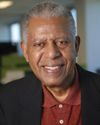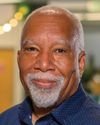There is certainly no shortage of stereotypes around millennials, but are they all true? If they are, how does that affect the workplace dynamic? While it’s interesting to look at how different generations approach their work and careers, they may not be as different as you think. Below we explore how generations of workers are different (and the same), how to best manage millennials, and what each generation can learn from the other.

Are Millennials Really That Different?
When it comes to millennials in the workplace, there are a few keys ways in which they are different from previous generations:
They like to be rewarded or recognized—often.
This plays right into the stereotype of the “everybody gets a trophy” generation, but the data backs this up. Forty-one percent of millennials would prefer to be recognized or rewarded at least monthly (if not more often), while only 30% of non-millennials expect such frequent praise.
They value flexibility.
Not only do millennials think workplace flexibility is a nice feature but they believe it enhances the entire working experience. From productivity to employee engagement and financial performance, Deloitte’s 2017 Millennial Survey found that millennials think options such as flexible working hours and locations help the business as a whole. Overall, millennials view work as a “thing” and not a “place.”
They feel accountable for issues in the world.
Millennials feel a sense of accountability to address issues such as climate change, social equality, the direction of their country, and the behaviors of large companies. However, they often feel that they have little influence over change. One area in which they feel the most influential is the workplace, where they hope to impact their peers, customers, and suppliers.
They may not stay at one company for long.
This story is from the {{IssueName}} edition of {{MagazineName}}.
Start your 7-day Magzter GOLD free trial to access thousands of curated premium stories, and 9,000+ magazines and newspapers.
Already a subscriber ? Sign In
This story is from the {{IssueName}} edition of {{MagazineName}}.
Start your 7-day Magzter GOLD free trial to access thousands of curated premium stories, and 9,000+ magazines and newspapers.
Already a subscriber? Sign In

Preparing to take flight: Inspiring the next generation of pilots
BOEING AND NONPROFIT PARTNERS AWARD SCHOLARSHIPS FOR GREATER INCLUSION IN AVIATION

PEOPLE & EVENTS
Autodesk has made a generous donation of $5 million to Howard University’s College of Engineering and Architecture (CEA), marking the largest philanthropic contribution in the college’s history.

ON CAMPUS
South Carolina State University (SC State) received an $8 million funding boost from the state to propel its STEM program and strengthen its partnership with neighboring universities, including the University of South Carolina and Clemson University.

THE IMPORTANCE OF AI AND HBCUS
Inclusive AI Advancement: HBCUs' Role in Diversity, Ethics, Research, and Workforce Development

REVOLUTIONIZING HEALTHCARE
The Transformative Impact of Medical Technology Health on Global

BRIDGING THE DIGITAL DIVIDE
Demystifying the Metaverse: A Look at its Potential to Bridge the Digital Divide

REDEFINING YOURSELF
How Kindra Porter Uses Change to Drive Progress in Aerospace

INNOVATION IN ACTION
Navy Leader Walt Davis Champions Vision, Adaptability, and Risk-Taking to Inspire Future Generations of Innovators

LANNY SMOOT
Lanny Smoot is synonymous with creativity and innovation in theme park entertainment.

ENGINEERING'S GRAND CHALLENGES & OPPORTUNITIES
From AI to Infrastructure: Shaping the Next Decade with Engineering Solutions